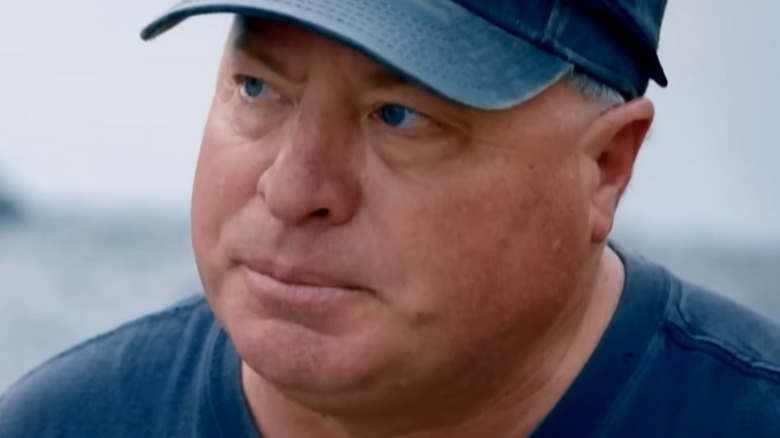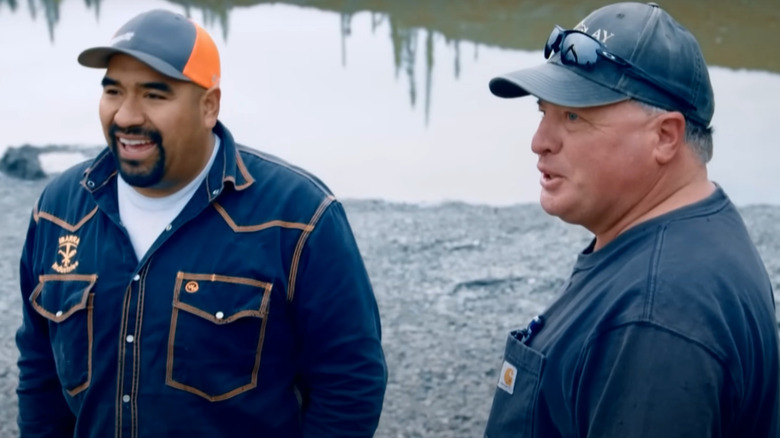How Gold Rush's Freddy Dodge And Juan Ibarra Breathe Life Into Struggling Miners
For many members of the "Gold Rush" family, it's enough of a hassle just trying to keep their own operation going. Between operating expensive pieces of equipment, mining in remote locations, butting heads with other members of the operation, and potentially doing all of this just to come back with little to nothing for their efforts, it seems like a pretty stressful endeavor. One need only look at controversial "Gold Rush" star Todd Hoffman and his mining exploits for evidence of how unflashy and taxing this job can really be.
Considering how much work goes into maintaining a gold mining operation, it's rather surprising that "Gold Rush" regulars Freddy Dodge and Juan Ibarra would seek to help others out in addition to their own efforts. However, that's exactly what they've decided to do, spending a decent amount of time aiding other miners. Here's how exactly the power duo goes about being a guiding force in the industry.
Mine Rescue is all about rescuing miners
In 2021, Freddy Dodge and Juan Ibarra received their own "Gold Rush" spin-off series on Discovery+: "Gold Rush: Freddy Dodge's Mine Rescue." While its title may evoke images of perilous rescues of trapped gold miners, the series is more about helping miners that are down on their luck than anything else.
In an interview with Monsters and Critics, Dodge explained the process behind helping their struggling peers. "People tend to get tunnel vision and so Juan and myself are coming in with our experience and our fabrication skills and our equipment, right?" he explained. "Our trucks and what we've got and we hit the ground and we see things that they don't see. We see things that they might've looked around, but didn't acknowledge is that was the problem. And our experience lets us see it right away."
Dodge and Ibarra may have experience, but it's not just about coming in and doing people's jobs for them. Ibarra told MediaVillage that getting an understanding of how each operation normally functions without interference is key in developing an assist strategy. "There's only so much we can do by just assessing the plant and their operation just by looking at it without it running," he said. "But once it runs, it's a completely different story [...] I bet you, within the first ten, fifteen minutes of watching a plant in their operation, we can come up with ideas."

